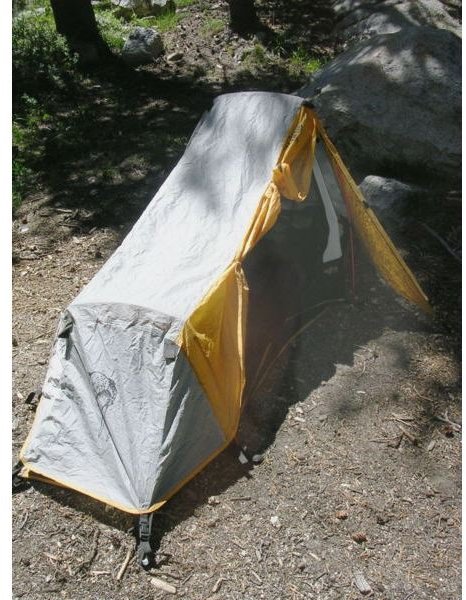How to Eat Healthy When Hiking on the Hitchhikers Diet
Hikers, backpackers, and travelers on a shoestring budget who usually walk long distance need a good diet for endurance.
The best hitchhikers diet plan for hikers is one containing nutrients in the following proportions:
- 50 to 60 percent complex carbohydrates to replenish the carbohydrates burnt when walking
- 20 to 30 percent protein that aids in muscle tissue regeneration and help maintain muscle mass
- 20 to 30 percent fat
Hikers, however, usually eat unhealthy, with scant regard to the ideal diet considerations or eating tips. The reasons could be lack of access to proper food sources, lack of time to eat healthy, lack of budget to buy the correct type of foods, and various other reasons.
Smart Eating Tips for Hikers
The composition of the diet apart, following some smart eating tips also keeps the hiker in good stead. Some of such tips include:
- consumption of a sumptuous breakfast keeps hunger pangs away for the rest of the day
- eating small portions at frequent intervals instead of large meals. This boost metabolism, increase energy levels and decrease appetite
- eating a carbohydrate laden snack within 30 minutes of stopping to recover better for the next day
- not overeating, for overeating can cause gas, upset stomach, mood swings, diarrhea, and burning eyes, all which cause irritation, discomfort, and upset travel plans
Natural Diet for Hikers
The hikers and explorers of the past, who spend most of their days in the wilderness and went for hikes and expeditions that lasted for days or even years, were adept in satisfying their nutritional requirements from basic foodstuffs available around them. Natural foods such as dried beans, meat, flour, oats, grains, and cornmeal provided these hikers with most of their nutrient requirements. Expert hikers remained adept in including dried fruit, sugar, pepper, salt, and fat from the carcass of a fresh kill into their daily menu, making their diet a balanced and healthy one.
While hunting for food might no longer be an option for hikers these days, the hikers diet incorporating such natural food ingredients and diet pattern as far as possible help hikers and backpackers obtain much of their nutritional requirements and remain healthy.
Hikers need to consume plenty of fluids throughout the day to remain hydrated, and the best drink is water. Backpackers diet can also include lemon water and iced tea, but alcoholic drinks are a strict no-no, with only the occasional indulgence in wine condonable. Drinks with added sugar or chemicals including carbonated drinks cause dehydration. Alcohol stimulates the appetite and is a primary source of empty calories that add to body weight, hampering physical activities.
Restaurant Diet for Hikers
Most hikers and backpackers consume most of their food from restaurants. Restaurant food is generally high in fat and calories and eating healthy from restaurants require adoption of some smart eating tips.
Some tips include:
- taking note of the ingredients in menu choices rather than the name of the dishes to select low calorie and low fat options.
- avoiding unfamiliar foods from the menu. Foods that do not agree with the stomach can cause gastric problems and even food poisoning.
- ordering items not listed in the menu. Egg-white omelettes, for instance, is a healthy food option for travelers but would rarely be mentioned on most menus.
- opting for stir-fried, steamed, broiled, baked, grilled, poached, or roasted food that have less oil instead of fried dishes. Budget restaurants frequented by hikers and backpackers might give primary consideration to the cost of the cooking oil rather than the health implications. Unhealthy cooking oil increase cholesterol levels, and add to the fat and calories.
- avoiding food that contains high sodium and MSG. Many restaurants add salt and MSG to increase taste, but such condiments cause many harmful side effects. For the hiker, they cause chest pain, confusion, a burning sensation, headaches, shortness of the breath, and weight gain, among other ills.
The answer for the question how to eat healthy when hiking lies in the hitchhikers diet plan that recommends some smart eating tips, advocates consumption of natural foods as far as possible, and recommends safeguards when eating from restaurants.
Disclaimer:
Please read this disclaimer regarding the information in the Alternative & Natural Health Channel.
References
- Aschwanden, Christie; & Cederborg, Julie. The Hiker’s Diet.
- Buck Tilton. Old-Time Camp Food
- Natural Health Restored.com, The Dangers of MSG
- Prevention Magazine (December 2008). The Hitchhiker’s Guide to Healthy Dining.
Image Credit: Wikimedia Commons/backpacker
